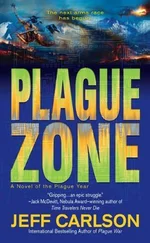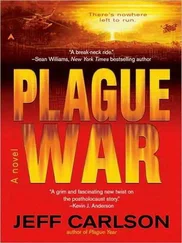“Garcia?” Stenstrom raised his volume painfully.
Answering, I almost swallowed a mouthful of water. Despite all of my training, subvocalizing into a throat mike was very different after the changes reinforcing my mouth and neck. Eating would be a chore.
I croaked, “Drop volume!”
Stenstrom was apologetic. “Is this better?”
“Down, down. Lots.”
“You’re more sensitive than we expected, apparently. Any other immediate difficulties?”
I kicked through a tight somersault. “Feel great!”
#
My pride was my savior, my source of endurance.
I spent the longest five weeks of my life in that tank and in a deeper pool, healing, testing, practicing. My feet and toes had been augmented much like my hands, my thighs shortened to maximize the available muscle. I was damned quick. Relearning construction techniques with my new fingers was sometimes frustrating, yet my progress was real and those periods of solitary labor became important to me.
At the surface, in the shallows, doctors poked and prodded and put me through redundant tortures. I had been warned that the study of my new body would be extensive and I did my best not to fear or hate them, but I’d never imagined such intense scrutiny. During my years as a SEAL, I had been like a bug under a microscope, constantly evaluated and scored. Here I was the microscope, my body the only lens through which they could measure their work.
Stenstrom tried to be my buddy, as he had always tried, joking and asking what I’d do with the money, yet his possessiveness was obvious. “We’ll be famous,” he said. “We’ll change the world.”
I wasn’t a slave or a pet exactly, but I was anxious to get started — to get away from them.
The project had almost selected someone else, a loudmouth much better at politicking than me, but the job would mostly be done alone and they must have thought he’d break without an audience.
I’m sure my Navy files indicated no problems of that nature. I’m the private type, happiest diving or surfing with my laughing Andrea or teaching our boys to swim, feeling my heartbeat, finding the perfect ride, the perfect moment, away from other people and their squabbles and protest marches. I’ve never understood the urge to merge, never wanted to add my opinions to the bubbling stew of e-media or buy five minutes of fame on iBio. For me, a mob holds no power, no point. Running in circles won’t improve the economy, clean the environment, or affect the East Asian guerrilla wars in any way. Hard work is the answer. Honor. Persistence. A willingness to take risks.
The project offered all that and more.
I had to relearn how to chew and swallow, a slow process but strangely more flavorful. Stenstrom said that was only because of the premium foods they’d secured for me, but I had eaten well occasionally in the past and decided my improved palate must be a side effect of the surgeries that had strengthened my jaw and lips. Could taste buds be sensitized?
Learning to see again was also a challenge. From old research with dolphins and orcas, Stenstrom knew better than to surround me with smooth walls. Many of those captives had gone insane over time. That wasn’t a concern here, but they didn’t want my brain to establish its new neural patterns in wrong or confused ways.
Before activating my sonar receptors, which used ultra low frequencies far below my improved range of hearing, they put me in the deeper, irregularly shaped pool.
It was beautiful. I’d lost color but the textures were vivid, stark, each shape imposing. My receptors could also see normally but had no better than 20/600 vision in that mode, which I’d use only for close-up work and to read instrumentation.
I chose complete blindness when calling my family. Rather than face a showphone, I let a computer read and type for me, my throat mike patched into a voder. Site management had encouraged me to limit our exchanges to text only, which was easier to encrypt — and who knew what seven- and four-year-old boys would make of some stiff-mouthed monster claiming to be their father? Brent had only stopped referring to me as “step-dad” a short time ago, and Roberto was still young enough to forget me. The portrait we’d had done before I left was not an image that I wanted to disturb, even though I had been caught in mid-blink and Andrea’s smile looked forced, too large.
“I’m doing great, Hon, how are the boys?” I asked.
Her response came in stuttering groups of syllables, all emotion masked by the machine: “I used part of the advance money to buy a DFender for our apartment.”
It almost seemed like she was having a different conversation.
“Why bother?” I asked. “The house should be ready soon.” Smart alarms cost thousands of dollars, just a speck of what I’d earn, but the money was supposed to last the rest of our lives.
“We’re still here in the meantime,” she said.
The boys gave me no chance to brood over the resentment that seemed so clear in her words. Maybe I only imagined it. “Are you in the ocean yet how far down can you go?” one of them babbled, without first identifying himself, and other said, “Greenpeace rated you a top ten on the widecast yesterday!”
Brent and Roberto both took after their mother. They were rambunctious little monkeys, and gave me the praise and enthusiasm I’d expected. I hadn’t realized that Brent could type so fast. The voder spoke his questions much more smoothly than anything Andrea had sent.
Somehow, technical sketches of my surgeries and gear had leaked onto the net. I even had fan clubs with names like Cyborg.org and zMerman. The boys hoped for an exclusive and I decided it was better to play along and celebrate my alienness. I promised to bring them both mementos when I returned. By then, security should have loosened enough for me to take home a few small bits of hardware, something for them to put on a shelf or carry in their pockets.
When Andrea came back on, she was encouraging but brief. “Six hundred four to go,” the voder said for her, but I didn’t know how to answer. I had lost track of the days left until my contract was up, knowing how long it would be.
“Love you,” I rasped, and the computer carried my inadequate words away.
#
Mapping the ocean floor was the greatest thrill of my life. Most people probably would have considered it tedious, gliding through a quiet, monochromatic world, but then the only way to get a rise out of most people is to batter them with kaleidoscopes of music, breasts, and talking heads — or to turn off the net and TV. The worst riots always occurred during the rotating brownouts.
Oil and coal were fast becoming memories, and incredible advances in solar power had come to nothing due to greenhouse clouds and the megatonnage of dirt thrown into the atmosphere by the Nine Days War. With tens of thousands of people still sick from radiation poisoning, no politician would even mention new nuclear plants, and hydroelectric, biomass, and wind generators weren’t enough to keep civilization chugging along without interruption.
Aro Corp. had the answer. For months now, crews had been scouting various locales with buoys and remote operated vehicles. The tiny Japanese island of Miyake-jima, dead south of Tokyo Bay, was deemed perfect for political as well as economic reasons. Miyake-jima belonged to an underwater ridge that extended from the Japanese mainland directly into the Pacific current, and its steep southern slope offered powerful updrafts in addition to the normal ocean tides. Aro Corp. planned to build a field of turbines as deep as five hundred feet, using cutting edge technologies like me.
Normal divers max out at three hundred feet and can’t remain there long in any case. My surgeries eliminated the need for air tanks. More importantly, a gel solution had been suffused through my bloodstream and organs to protect me from compression.
Читать дальше












